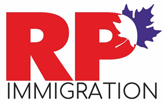
WORK IN CANADA
Work in Canada is regulated by the Canadian government through its immigration policies and labor laws. The country welcomes skilled workers from all over the world and offers various pathways to work and live in Canada permanently or temporarily.
To work in Canada, foreign nationals typically need a work permit, which is issued by the government after the employer has demonstrated that no Canadian citizen or permanent resident is available to fill the position. There are also several programs that allow individuals to apply for permanent residencies, such as the Express Entry system and Provincial Nominee Programs.
In Canada, labor laws protect the rights of workers and promote fair treatment and wages. The minimum wage varies by province or territory and is generally higher than the United States federal minimum wage. Additionally, Canadian employees are entitled to paid vacation, sick leave, and statutory holidays.
Thre are ample types of work permits available in Canada like Postgraduate work permit, spousal open work permit, International Experience Class, LMIA based work permit, Global Talent Stream and many more.
The Post-Graduation Work Permit (PGWP) is a type of open work permit that allows international students who have completed their studies at a Designated Learning Institution (DLI) in Canada to work for any employer in Canada for up to three years.
A Spouse Open Work Permit (SOWP) is a type of work permit issued by Immigration, Refugees and Citizenship Canada (IRCC) that allows the spouse or common-law partner of a foreign national who holds a study or work permit in Canada to work for any employer in Canada.
LMIA stands for Labour Market Impact Assessment, which is a document that Canadian employers may need to obtain from Employment and Social Development Canada (ESDC) in order to hire foreign workers. An LMIA is essentially a report that assesses the impact that hiring a foreign worker will have on the Canadian labour market, and whether or not there are Canadians or permanent residents available to fill the job.
IEC stands for International Experience Canada, which is a program that allows young adults from over 30 countries to work and travel in Canada for up to two years. The program is designed to promote cultural exchange and international understanding, while also allowing participants to gain valuable work experience and improve their language skills.
WHY WORK IN CANADA?
To be eligible for a Canada tourist visa, also known as a visitor visa, you must meet the following criteria:
There are many reasons why someone might choose to work in Canada. Here are a few:
- Canada has a stable and diverse economy
- High standard of living
- It is a welcoming and diverse country
- Salaries in Canada are generally competitive
- many employers offering flexible schedules, generous vacation time, and parental leave.
- Immigration-friendly policies
CANADA’S LABOUR MARKET
Here are some key facts about the Canadian labor market:
- Low unemployment rate: As of February 2023, the unemployment rate in Canada was 6.8%, which is considered relatively low by international standards.
- Strong job growth: The Canadian labor market has been experiencing strong job growth in recent years, with a net increase of over 300,000 jobs in 2021 alone.
- In-demand occupations: Some of the most in-demand occupations in Canada include healthcare professionals, technology workers, skilled tradespeople, and finance professionals.
- Skilled worker programs: Canada has several programs that are designed to attract skilled workers from overseas, including the Federal Skilled Worker Program, the Canadian Experience Class, and the Provincial Nominee Program.
- Strong labor protections: Canada has strong labor laws and regulations that protect workers’ rights and ensure fair treatment in the workplace, including minimum wage laws, maximum working hours, and paid vacation time.
- Unionization rates: Unionization rates vary by sector and province, but overall, about 30% of Canadian workers are unionized.

